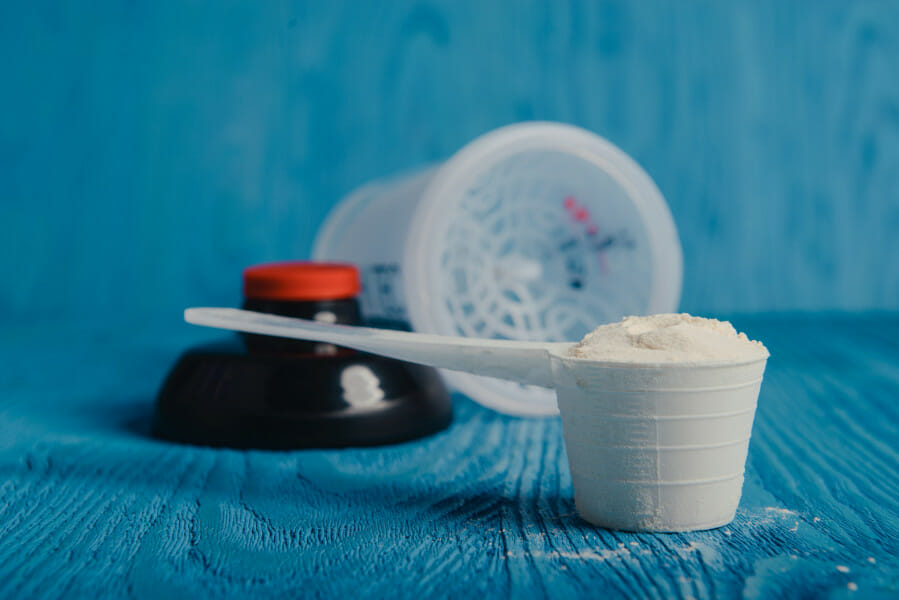The Beta-Alanine And Its Relationship with Itching
Beta-alanine is a widely used ingredient in pre-workout supplements for enhanced performance. Many individuals who consume supplements containing beta-alanine may notice a sensation commonly referred to as the “beta-alanine itch.” This itching typically occurs around the shoulders, neck, and arms, starting approximately 15 minutes after ingestion and lasting for about 30 minutes. If you have encountered this phenomenon, you might be curious about why beta-alanine elicits itchiness. Let’s delve into the scientific explanation behind the beta-alanine itch and address your queries.
 Image by Anastasia Gepp via Pixabay[/caption>
Image by Anastasia Gepp via Pixabay[/caption>
Understanding the Cause of Itching from Beta-Alanine
Beta-alanine is favored in supplements due to its ability to improve endurance, stamina, and muscle-building capacity for athletes and bodybuilders. This amino acid combines with histidine in the body to create Carnosine, a dipeptide that reduces lactic acid production during exercise, delaying muscle fatigue. While this is advantageous, beta-alanine often triggers the itchiness sensation, which is bothersome.
Upon beta-alanine consumption, certain neurons are activated, leading to a tingling and itching sensation on the skin. Although there is no physical impact on the skin, the neurons misinterpret signals, causing the itching feeling, termed “paresthesia.” This reaction is common with various ingredients in workout supplements, with individuals experiencing this sensation to varying degrees. Some may feel a slight tickle, while others may endure intense itching. Fortunately, this itching phenomenon poses no significant concerns, though it may deter some individuals from using beta-alanine-containing products.
 Image by Kristina Nor via Pexels[/caption>
Image by Kristina Nor via Pexels[/caption>
Assessment of Concerns Surrounding the Beta-Alanine Itch
Reassuringly, studies conducted by the National Institute of Health indicate that the beta-alanine itch poses no substantial risks. It does not herald any further issues or underlying health problems. Essentially, the itch is just that—an itch! This reassurance also extends to the similarly induced itch by Niacin, another common ingredient in pre-workout supplements. So, if you experience post-workout itching, it is generally an uncomfortable yet benign sensation that does not warrant excessive worry.
Strategies for Managing the Beta-Alanine Itch
While it may not be entirely avoidable, the uncomfortable paresthesia associated with beta-alanine can be minimized, enhancing post-workout comfort levels. One approach is to reduce the single-session intake of beta-alanine. This involves consuming smaller doses throughout the day to maintain lower overall Carnosine levels, thereby alleviating the itch.
Alternatively, utilizing a sustained-release beta-alanine product instead of traditional pre-workout supplements may help. These products release beta-alanine gradually into the body from a single dose, ensuring a high total intake of beta-alanine without sharp spikes at any point during the day.
Assuring the Safety of Beta-Alanine
To put it simply: yes, beta-alanine is safe for consumption. The beta-alanine itch, while discomforting for some, does not pose additional health risks. For athletes, the potential advantages of beta-alanine supplementation can be considerable. If the itch proves intolerable, you may opt to avoid beta-alanine, but rest assured that it does not jeopardize your well-being.
 Image by Luisella Planeta Leoni via Pixabay[/caption>
Image by Luisella Planeta Leoni via Pixabay[/caption>
Exploring Other Beta-Alanine Effects
In terms of side effects, the good news is that beta-alanine is currently not associated with any other adverse effects aside from itching. Therefore, there is no need for concern when incorporating beta-alanine into your regimen.
*collaborative post
!function(f,b,e,v,n,t,s){if(f.fbq)return;n=f.fbq=function(){n.callMethod?
n.callMethod.apply(n,arguments):n.queue.push(arguments)};if(!f._fbq)f._fbq=n;
n.push=n;n.loaded=!0;n.version=’2.0′;n.queue=[];t=b.createElement(e);t.async=!0;
t.src=v;s=b.getElementsByTagName(e)[0];s.parentNode.insertBefore(t,s)}(window,
document,’script’,’//connect.facebook.net/en_US/fbevents.js’);
fbq(‘init’, ‘1659360370986360’);
fbq(‘track’, “PageView”);
Featured Image by Andrew Wilus via Pexels













